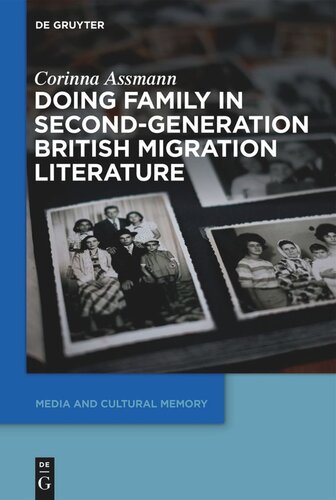

Most ebook files are in PDF format, so you can easily read them using various software such as Foxit Reader or directly on the Google Chrome browser.
Some ebook files are released by publishers in other formats such as .awz, .mobi, .epub, .fb2, etc. You may need to install specific software to read these formats on mobile/PC, such as Calibre.
Please read the tutorial at this link: https://ebookbell.com/faq
We offer FREE conversion to the popular formats you request; however, this may take some time. Therefore, right after payment, please email us, and we will try to provide the service as quickly as possible.
For some exceptional file formats or broken links (if any), please refrain from opening any disputes. Instead, email us first, and we will try to assist within a maximum of 6 hours.
EbookBell Team

4.3
18 reviewsDue to the large-scale global transformations of the 20th century, migration literature has become a vibrant genre over the last decades. In these novels, issues of transcultural identity and belonging naturally feature prominently. This study takes a closer look at the ways in which the idea of family informs processes of identity construction. It explores changing roles and meanings of the diasporic family as well as intergenerational family relations in a migration setting in order to identify the specific challenges, problems, and possibilities that arise in this context. This book builds on insights from different fields of family research (e.g. sociology, psychology, communication studies, memory studies) to provide a conceptual framework for the investigation of synchronic and diachronic family constellations and connections. The approach developed in this study not only sheds new light on contemporary British migration literature but can also prove fruitful for analyses of families in literature more generally. By highlighting the relevance and multifaceted nature of doing family, this study also offers new perspectives for transcultural memory studies.